Looking for customer retention strategies? This is for you!
If you’re not putting a lot of attention into customer retention, you are missing out BIG time! It can cost 5 X more to attract a new customer than it does to retain an existing one AND increasing customer retention rates by 5% increases profits by 25% – 95% (Source: Forbes).
In this podcast, you’ll learn the specific customer retention strategies we implement to do exactly what this podcast says on the tin + lots of examples including a £200K case study from a client that has been with us for 5 years.

Pat 0:00
Hi Pat the podcast editor here, new clients and new leads seem to be the main focus for marketing agencies but many neglect the bread and butter of returning clients at steadily paying their overheads every month. Well, in today’s episode, Dan and Lloyd share some practical tips on retaining and nurturing your relationships with repeat clients,
Dan 0:19
I’d schedule some time to note down any evidence or data you have that demonstrates you deliver on your promises. That can be the starting point to incorporating that into your marketing so that you’re not like every other business in your industry that says ‘we do good stuff’ because everyone says that, or our products are the best in the world. It’s like, show us the evidence and if you have that evidence, that’s a good little action that you can take
Pat 0:43
Lloyd gives some examples of different types of clients you’ll face in the big wide world of business.
Lloyd 0:49
One of them is a famous client. The second type is a schmooze client. The third is the perfectionist client and the fourth one is what they call a bully client. Bit of a weird one.
Pat 0:58
Now before we dive in, we like to take a second to thank our sponsor, Adobe Express. Adobe Express allows you to quickly and easily create standout social graphics, logos, flyers, and more on the web and mobile. Click the link in the description. Try Adobe Express today. Right, Let’s get on with the show. Have your notepads ready. This is episode 114 of the business anchors podcast.
Lloyd 1:34
We all want long-term clients but how do we attract and retain them Dan?
Dan 1:40
That was a brilliantly read question Lloyd. I’m impressed with that.
Lloyd 1:44
Thank you. I’ve been reading for roughly 25 years. Oh, wait, longer than that!
Dan 1:49
We’re gonna be answering that question…You don’t even know your age?
Lloyd 1:54
I briefly forgot my age and thought I first read when I was eight years old. I was younger than that, I think?
Dan 2:00
So we’re gonna be answering that question in this episode, Lloyd. Interestingly, the reason we’re doing an episode on this is that we both realised, we always talk a lot about when new customers join Knowlton as in when we bring on new customers because it helps build credibility and social proof, but we never talk about any customers who are, sorry, I can’t remember…
Lloyd 2:29
Renew?
Dan 2:30
Renewing. Sorry. That’s it, renewing their contracts and this week, some of our customers renew their contracts for the fifth year in a row and we were like…
Lloyd 2:41
This is impressive, isn’t it? And completely missed an opportunity where, like you said, It’s not just us that don’t talk about this kind of thing. Like we’ve got a customer that’s been incredibly loyal and wanted to work with us for five years running. That must mean we’re doing a great job but we don’t talk about that stuff until now. I think a lot of businesses are in the same position where if they get new, an exciting new client, if it’s like a b2b business, or if it’s like ‘oh, we’ve got our 1000 customers’ if you like a new business, selling products, whatever. No one talks about it like ‘Oh, our customers come back every single month or every year or because they love our stuff so much.
Dan 3:26
From a marketing perspective, I think that that’s more impressive. Then saying, Oh, we’ve got new clients that want to work with us.
Lloyd 3:35
In theory, getting new clients, you could somehow trick them, you could be like, honestly, our products are really good. Then they buy it, and then they get it and you like well that was rubbish. You know, if you’re good at sales or marketing or, you know, or you’re just a horrible person deceiving the world, you can do that. You can’t do that by getting customers to come back because then they’ve experienced your service or your product. They’re not going to come back if it’s not good. So to prove that it’s so good people come back. That’s a much bigger thing and this happening this week was like a bit of an aha moment of like, oh, shit, we do have quite a few returning customers. I thought that it’d be good for the Anchors to hear how we attract and retain ongoing customers. That customer came back for the fifth year. This week. Is a weird one as well,
Dan 4:28
Why are they weird?
Lloyd 4:28
It’s weird because they went to a different agency asking for a new website and that agency said to us, I don’t think they’ve got enough budget to work with us. Do you want this? and at that point, we were still doing or considering doing website work and stuff but then we were like, Oh, you don’t need a new website. You need this other stuff because when we looked at it, we’re like, that’s that doesn’t make sense for them to invest in that and not in other types of marketing and stuff. It’s gone from there then not even coming to us, to five years down the line…
Dan 5:04
They spent over 200,000 pounds with us.
Lloyd 5:07
Yeah, yeah. Pretty good.
Dan 5:09
Before we get into sharing some tips and advice on how people can attract and retain long-term clients, Why don’t people talk about clients that are renewing? Why do we focus on the new ones and not talk about them? Because it is a bit of a weird moment for us? Like, why aren’t we using this as a marketing tool? We never have, over the past seven years…
Lloyd 5:33
I don’t know. Why do you think they don’t talk about it?
Dan 5:39
I don’t know, I think probably the new clients coming on board seem more exciting because it’s something new. Whereas I guess you kind of think in your mind, like, no one’s gonna care about us saying, oh, the current client has been with us for four years is renewed for a fifth year but when you think of it strategically, like we’re trying to build trust with our potential customers in the world, say, like demonstrating that a client keeps coming back because of us doing a good job for them has a good amount of kind of social proof and credibility that comes with it.
Lloyd 6:11
I’m just thinking like, imagine if, say you’re like PG Tips, tea bags, or whatever and you know that your customers come back to the supermarket every single month and buy your tea again? It’d be a nice tagline. Oh, I’ve got to think of it…PG Tips, Our customers come back every month because the tea is so good. That sounded brilliant, didn’t it? Do you know what I mean by hearing from a business that your product is so good that people just come back constantly? It’s like a, it’s an opportunity. Why don’t more of us use it?
Dan 6:47
Yeah. It’d be interesting to know if Anchors listening and if you talk about this a lot? or mentioned customers renewing, because we don’t
Lloyd 6:56
No, we don’t. Why do you think it’s so important that we start this conversation Dan, we start talking about retaining and returning customers rather than just when we get other successes within our businesses.
Dan 7:11
I think the simple thing is, it’s evidence that we’re good at what we do. From a marketing perspective, we’re constantly trying to demonstrate that we deliver on our promises, as a marketing agency, we’re ultimately selling a promise. We’re not selling anything tangible, like a product we’re selling, like, we can help you sell more of your product like that’s the main goal, sell more of your products or services. So it’s a bit of a promise. So any evidence we have to demonstrate we do a good job with that, and we have done it with other clients is important for us to communicate. I think not just us like you listening. Even if you sell products, though, like, this is why things like reviews and testimonials and things are so important and case studies to demonstrate that your product does what it says on the tin, in a similar way to like, we’re trying to demonstrate that our service does what it says on the tin.
Lloyd 7:59
You’ve got this stuff there ready to use in your marketing to get more customers. So you’ve already got those reviews, or you’ve already got those returning customers you can talk about. I guess this is a wake-up call. Think about that. How can you use that? I was targeted with an I believe it was a tennis grip, but I used it from a squash racquet. I think the ad that converted me in the end, was just an image ad of customer view. I was like, and they were saying like, this is so good and I was just like, yeah I believe that. Yeah, there are lots of ways you can use this, but the opportunity is there.
Dan 8:42
And even like, if you’re listening to this, or watching this and thinking ‘no one cares about us talking about clients that are renewed and happy customers’ no one’s gonna care about that. They genuinely do if they’ve got an intent to purchase your products and services. This is why the kind of buyer journey and the marketing funnel is so important. You’re correct, people who aren’t interested or don’t need what you offer won’t be interested in hearing about happy customers, but the ones that are further along that customer journey, who have a problem that you can solve, who are considering choosing your solution of your competitors, they will be interested in hearing sort of about happy customers and evidence that other people are.
Lloyd 9:25
That makes sense. So not used as an awareness type thing. The first time someone hears of you is someone saying, I’m a happy customer. It’s like they’re already they already know of your brand or business and then a way to convince them, if they’re in that consideration stage of the marketing funnel that we’ve spoken about before where they’re like ‘oh, yeah, I know about that business’ they could be someone we could buy from in the future and then you hit him with loads of customers that are like, this is brilliant. I’m like you and they’ve done loads of good stuff for me.
Dan 9:58
What can differentiate you from your competitors is using evidence-based marketing at any opportunity to provide data for us. Whenever we’re producing ads for our own company or marketing content, we always think, what data can we share that proves that we deliver results for our customers. That’s the real type of messaging that has an impact. We’ve done this on client projects before like, it’s practicing what we preach, we are currently working with a B2B client, and they’ve just converted a million-pound contract from the campaign that we’re running and the lead that we generated for them. That campaign works so well because, in all of the content, we provided data and evidence to show why their product is great, what it does and what it achieves
Lloyd 10:49
That was like Inception, then because you were talking about that campaign that showed data to convince people whilst talking about the data of a million-pound contract that we got for them in that, which is data we’re using to communicate to people
Dan 11:04
Yeah, all right. I mean, to be very meta with you. So this million-pound contract happened very recently. How much is a 7 million pound contract? Okay, just from a lead that Knowlton generated from our Linkedin campaign.
Lloyd 11:18
That sounds pretty good.
Dan 11:19
But no, I’m not saying. I’m saying because that but to give you a bit more detail on my to-do list currently is thinking like, how can we as a marketing agency, make the most out of that evidence that we’ve gotten from a b2b perspective is we’ve got tonnes of b2c campaigns that we’ve done, and b2b, but this is a really impressive one that I’m even thinking now. Like, what should we be doing? What content could we create to provide that evidence to let more b2b businesses know we can…
Lloyd 11:47
it’s communicating that simple evidence. So simply communicating, we’ve won a million-pound contract for a client, simply communicating, this customer has renewed five years in a row because we’re so good at what we do. It’s quite simple messaging like you’re just communicating one thing, but they’re very powerful things, aren’t they? Yeah, if you’re communicating, someone’s come back five years in a row, like the standard of work must have been so high and consistent for five years, not like a couple of months, or weeks, or the five years for them to come back that one sentence communicates so much.
Dan 12:25
Just thinking aloud here, whilst listening to this, I’d scheduled some time to note down any evidence or data you have that demonstrates you deliver on your promises, like actually sit down and think, right, what, what examples of happy customers do we have, that we, you know, evidence and data that shows that we deliver on our promises, shows that people like our products and service and start to note that down, because that can be the starting point to then incorporating that into your marketing, so that you’re not like every other business in your industry that says we do good stuff because everyone says that, or our products are the best in the world. It’s like, show us the evidence. If you have that evidence, that’s a good little, little action that you can take.
Lloyd 13:08
Yeah definitely. Erm Dan, I did notice in our notes, this probably isn’t a professional way to go into the next point but there was some kind of study. I thought Dan’s gone to the effort to look into real facts so what real stuff from intelligent people have we got to communicate rather than learn from us?
Dan 13:31
So after we did our podcast episode, I think it was 112, where we looked at psychology studies and lessons. I’ve started to think more like whenever I sort of have anecdotal thoughts on why things work, I always think like, now I’m going to find a study that backs that up, because then it’s more interesting than just us saying, we think this is good. So this whole, like evidence-based marketing and talking about customers that are renewing their studies that show that this can work. So have you ever heard Lloyd has informational social influence?
Lloyd 14:10
No, I’ve heard of all those words separately.
Dan 14:12
Yeah, so it’s basically where a person conforms because they have a desire to be right and they look to others who they believe may have more information.
Lloyd 14:24
They have a desire to be right.
Dan 14:26
Here’s a prime example of this in action. You’re the head of marketing for a brand. Just play it out with me Lloyd. Your head of marketing for a brand that sells a new product. Yeah. Okay, a new gardening product. You’re looking for an innovative new way to market your gardening product, something you’ve never tried before. but it’s kind of unknown territory. So what you will do is look to other people who have used an innovative approach that you can think oh, they did that innovative approach. So I’m going to do that because it’s less risky because I can see that someone else has done it,
Lloyd 15:05
If someone else does it, it’s more likely to be the right thing to do. Other people are doing this, and it seems to be working.
Dan 15:10
The actual study, just to give you the details of the study. So there’s a guy called Alex Lasky, who works for a comedy called Opower. Did he run an experiment to see which type of message would be best to encourage others to save energy? Okay, and there are four things that he did. The first one is, in the messaging, he said, you can save $54 this month. The second one was, you can save the planet. The third one was, you can be a good citizen. And the fourth one was, your neighbors are doing better than you. Which one of those do you think worked best in terms of messaging to encourage people to save energy? Lloyd,
Lloyd 15:46
Well, I’m assuming that your neighbors are doing better than you? Because you’re, you’re thinking like, Oh, they’re doing it? and I’m not. So I want to do that. Yep. Right, exactly.
Dan 15:58
The first three that I mentioned, led to no increase in energy saving, the fourth one about your neighbors. It worked and it led to a 2% reduction in household energy usage.
Lloyd 16:08
Thinking of others, like, Oh, they’re doing it right. I should try and be more like that. Yeah, rather than just doing it because you want to be or because you think it’s your right thing, or Yeah, okay.
Dan 16:21
So again, this is backing up the reason why you should be talking about your customers either renewing with you or when new customers come on board, you should be telling the world about that. Look, all these people that trust us, look, and we utilise this. Whenever we’ve got a new customer, we actively say, Oh, great, we got a new customer and it’s like, building that credibility and trust.
Lloyd 16:43
So that was the study from an intelligent person. Now looking for tips and advice from an unintelligent person. Yeah. What sort of advice do you have for people if they want to attract and retain long-term clients?
Dan 16:56
So from my experience, first of all, you need to think about what makes up a long-term client that you are looking to attract. What do those clients look like? This is kind of the first stage so you’re trying to attract longer-term clients that keep renewing with you. What do they look like? Because there are lots of different types of customers you’ve attracted. Over the years, we’ve worked with a whole range of different size organizations in different industries, with different kinds of decision-makers from the companies.
Lloyd 17:26
So as a long-term client if I’m thinking about us, it could be like, we want to be working with businesses that have between 30 and 500 employees and have a marketing budget of at least 20,000 pounds a month. Is that sort of thing you mean?
Dan 17:44
that, but I think you can go into a lot more detail. So things like just thinking about us. We want our values to align. So we want to make sure yeah, we also want to be confident that there’s a demand for what they sell like we’ve been approached in the past to promote products and things that we looked at and thought I would never buy and no one will ever buy that. Do we as a marketing agency want to work with a company that has no evidence…
Lloyd 18:15
Even if they’ve got the marketing budget to pay us, we don’t want to work with them because that thing’s not going to sell and people don’t want it.
Dan 18:22
And us, you know, we’re starting seven years ago, whatever, we would have probably worked with anyone, no matter how rubbish, the products, actually anyone. Through experience, we, you know, want to keep our integrity, and we want to keep developing great case studies to show how successful we can be.
Lloyd 18:41
Yeah, so picturing what those long-term plans were…
Dan 18:46
So step one is mapping out what does that ideal customer look like? and the second stage is trying to figure out what the decision-makers in those companies care about. This is a really important one, you need to focus your messaging on the types of things that they care about. So to give you an example, two examples. There’s one client we’ve worked with for a long time, a credible brand that you’ve probably heard of and we spoke to the decision maker in that company and asked them, Why did you choose to work with us? And why do you keep continuing to work with us? Because that information is really useful to us. That can shape our messaging to attract new customers and one of the main things they said was, which wasn’t necessarily what I thought they would say is focus on first I thought they’d say because you get great results. It wasn’t that because your team is really easy to work with which sounds strange, but I guess their motivations in their job are probably that they don’t want to be stressed. They want the people they’re working with to do what they say they’re going to do. I guess we do that. So that’s like a massive motivation.
Lloyd 20:03
It often gets missed and something I’m going to talk about a bit later in this episode is what the actual people want, not the business goals, but the people in those positions that you need to get in front of the decision-makers. What they want, like, it’s this thing of, ‘oh, it’s easy to work with your team’ that person’s looking for, like a stress-free job, and to be able to do what he needs to do. So his bosses aren’t on her back, or his back, kind of like, Oh, why have you done this, because like ‘Oh, I’ve worked with these guys, they’re good at what they do. They’re easy to work with and I don’t have that pressure
Dan 20:48
Another example, for a very different motivation from another client. We work with another client that gets excited by being involved in very creative video concepts that are to do with their interests, which are completely different. So pitching to them is very different, the things that we’re pointing out.
Lloyd 21:09
I think I’m gonna go into my examples now. it’s a good time. So this is really important, this point of knowing the people, the decision-makers that you need to get in front of what they want and what drives them? And an example for our business that I’ve got from the Agency Nomics book by Spencer Gallagher and Peter Hall, Oh, we’re in that book actually, by the way! I find it interesting and useful. So they split marketing agency clients into four types of people. So one of them is a famous client. So they want you to help them achieve success in their role, and help them prove to their boss that they’re doing really good stuff and something that we get to do for fame client, for us is like, a project that they’ve got us to work on, put it in for an award to say like, they go to their boss and go, ‘Oh, we’ve won this award, because the work is so good that I’ve been leading’ So they want, they’re like, fine within their organization. I’m doing great at my job. So you’d want to kind of tell their boss, wow, Susan is brilliant isn’t she, she would love that. So that’s one thing, just internally within their organization, they just want recognition and that kind of thing and that’s what they want from you. The second type is a schmooze client. So this is completely based on the working relationship, not like results that you’re helping the business to get are anything, but they, they kind of want to be wined and dined and want you to make a fuss over them. So they’re kind of like, I’m in charge of the budget.
Dan 22:57
Yeah, I’ve met a few of those.
Lloyd 22:59
Yeah, and it is that kind of like, Yeah, I’ll renew, renew a contract with you and they wouldn’t say this, but, and I know I’m gonna get taken out for dinner. And like, you know, you could do meetings in exciting places and oh, I’m, I’m going to Wembley to watch England get a couple of tickets. I do want to come like that’s what they’re looking for. So that’s one type, there’s four of these. The third is the perfectionist client. So this one does not care about that schmoozing, and social stuff in any way but they just want you to make their life easier by getting things right. They want no fuss, they just never want you to make a mistake, they want to know they can rely on you to get the work done. They don’t want any more. So you know, you want to avoid typos, you want to make sure you’re on a budget, you’re on time every time you work with them, but they’re not looking for anything else. The fourth one is what they call a bully client. So they just want to tell you what to do and control you, a bit of a weird one. They’ll always be pushing you to achieve more than it’s possible.
Dan 24:04
You would avoid that client.
Lloyd 24:05
Well, yeah, it depends. They want you to work weekends and long hours to get the best job done. These clients give the most opportunity to earn the most money, they want you to do more work and stuff. So you can charge them a premium. So for agency marketing agencies like us and service-based businesses, there are probably similar categories to those four, but I think this is something to think about for any type of business. So you need to think about your business, what are the different types. If you’re thinking this is what our customers care about and it’s one thing you’re on your own? Yeah, you’ve got different types of customers that value different things and each could offer an opportunity. So if you’re selling T-shirts, some types of the customer will just care about it being delivered on time and the quality. Like they just want you to get it done what it says on the tin like, make sure it’s here tomorrow when you’ve said it is and make sure the quality is there. Others will care more about the free stickers that you’ve put in the bag with it. Like they won’t care if it’s on time, but they like your brand. You’ve chucked in five stickers with the brand and they’ll be ecstatic about that and they won’t even notice it’s five days late. Other people may care about the discount that you’ve given them. They don’t care about the quality or any of that other stuff, but they feel like they’ve saved 50% And that’s the most important thing to them ever. Why are you smiling?
Dan 25:31
Only because you mentioned the stickers and I just remembered that we used to be scared of stickers when we were kids. Sorry.
Lloyd 25:37
Yeah. I used to, Yes. No weird phobias here anymore.
Dan 25:45
Sorry, I didn’t listen to anything you said after you mentioned stickers. I was just thinking of you being scared of stickers.
Lloyd 25:49
Great. Yeah.
Dan 25:49
Carry on the t-shirt example.
Lloyd 25:51
Yeah, well, I’ve finished. Okay.
Dan 25:53
Just to go over this again. So the fourth thing is our fame.
Lloyd 25:58
Well, Dan, this is for agencies and relevant and its fame, schmooze clients, perfectionist clients and bully clients. I think for every business, there are different types of people. So I think about the different types of customers, like saying some will be focused on price and saving money. If you’re selling products, it’s not going to be that relationship where you’re taking your customers out to go and do this thing.
Dan 26:26
Because I’m just thinking of the listeners now, what they will be thinking… So it’s important to understand the types of clients so that you can appeal to the different clients. How do you figure out the types of clients? Is it a case of actually sitting down and just brainstorming and thinking like, these clients tend to like the stiff free stickers we give these clients like great customer service.
Lloyd 26:49
The clients that we have, that have the most success in their marketing are aware of these different types. So, for example, a whole foods company we’ve worked with, they have lots of different types of customers and they know that discounting and sales appeal to this group of people, when they always buy more, they know we’ve got this group of people that buy loads around Christmas because they’re going to host loads of people and want to cook loads of great healthy, nutritious food. They know some people just care about food, healthy foods they can snack on. So like they’ve got these different segments of, these different types of customers have different things that drive them to buy. Then they can segment and go, okay, well, let’s run a campaign, to tag people on snacking because we know, they’re not going to bother cooking, get ingredients, but they’re going to buy loads of this stuff.
Dan 27:42
That kind of leads on to my next point, which was, once you’ve done what Lloyd says, and you know, the buckets of clients and what they care about, then it’s a case of then like updating your comms strategy or your marketing strategy to ensure wherever you communicate with these people online or offline, use that messaging, that, you know, they give a shit about, basically, to attract them and convince them like the people that like discounts, make sure you’re heavily pushing like we do loads of discount.
Lloyd 28:15
You might have an ad that’s like 20%, of the sale of our great quality products and for one audience that 20% sale needs to be massive on the ad and for the other audience, it needs to be great quality products that need to be massive, small changes that, you know, understanding those different types of customers, and what they value is how you will get them back and retain them and have returning customers. Yeah,
Dan 28:38
Can I provide more value, and give some specific examples of how we do this, through our marketing strategy? So one thing we do is a behind-the-scenes series called ‘Inside Knowlton’ where we post the full videos on our YouTube channel, and shorter clips on other channels, where we show our team working with these big brands and show the scenes look at what it’s like to work with us. So that our ideal customers who we want to attract can see us working with other ideal customers that look like them, to attract them. So behind-the-scenes content, I think is a key thing that we do to do that. Another example is, and this comes back to that psychology study I mentioned, showing evidence of us achieving results for people that look like them because then it’s like, oh, we’re an E-commerce brand that sells these consumer products. They’ve just worked with a company that’s in E-commerce brands or sales consumer products and generated millions of pounds of attractive revenue. I want to be like that marketing manager because…
Lloyd 29:49
When we ask people like why did you come to us, say, here that is a very common thing. Oh, it’s when he posted the video about this type of business and they’re that type of business. They see a really specific example of someone like them. That’s what makes them after like, potentially weeks and months of thinking, Oh, I could work with these guys. That’s what makes them take the leap and actually get in touch and move the conversation forward. Yeah.
Dan 30:12
I think in general, it’s anything to show that we deliver on our promises, anything that shows what it’s like to work with other customers that look like them, like the behind scenes content, showing results, case studies on our website, anything evidence-based. This goes back to that tip I said earlier, as an action after this, listen to this podcast, spend just 10 minutes writing down any data or evidence you have that shows that you deliver on your promises, and then utilise that in your marketing comms.
Lloyd 30:42
Do you know in summary how to retain these customers to wrap this up? Unless you have anything else, Dan? I think simply, obviously, there are a lot more details, but to retain customers and to have to return customers, you need to do good work. That’s the first thing you can’t have returning customers. If your product or service is rubbish.
Dan 31:02
or sell great products that do what they say they do.
Lloyd 31:04
Yeah. So you have to be doing good stuff but then the second point of three is, to understand what your customers care about. Once you’re doing that good stuff. Then the third point is just making sure you communicate that stuff they care about to them.
Dan 31:22
So simple but so effective.
Lloyd 31:25
You could get the first one right of doing great stuff and I think we’ve had this in the early stage of our business, doing great work, but not communicating well enough the things that they care about and then they’ve left and you kind of thought, like we’ve had projects in the past much more like in the early stages of a business where we smashed that for them. We made him loads of money and stuff and I’m thinking, why wouldn’t they want to continue to work with us? Then later down the line, you reflect on it and it’s like, oh, they’re schmoozing clients. If another agency
Dan 32:00
took them out for dinner
Lloyd 32:01
Oh, yeah! Come to a Lady Gaga concert and let’s discuss working together. They choose to work with them. Oh now understanding what’s important to them. We needed to communicate those results, but also be doing those things and communicating ‘Oh, yeah we got Formula One tickets next month as well, If you wanna…’
Dan 32:20
Yeah
Lloyd 32:21
Yeah. So I think it’s doing good stuff. Working out what your customers care about, communicating that stuff, done. That could have been a short podcast. Yeah. Could have been.
Dan 32:35
Good, I hope that’s been useful Anchors. Like always, we always try to think of podcast episodes of things happening in our business that are useful to us. So hopefully you found this useful. If you have, we’d love it If you told other people about this podcast or shared it on social media. That would be helpful.
Lloyd 32:52
Yeah, I’d like that too. So we’ll see you in your ears next week.
Hopefully you’ve found these customer retention strategies useful! If you have any more questions, then why not start a conversation with us here at Knowlton.




























We've always wondered if anyone actually looks at the footer on websites. We don't think many people do. So if you're reading this... You're special.
Knowlton HQ, Unit 62 Maple Leaf, Manston Business Park, Ramsgate, Kent CT12 5GD
© 2024 Knowlton | UK. All Rights Reserved.